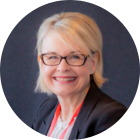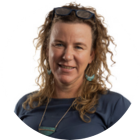Speakers
 Bhiamie Williamson
Bhiamie Williamson
Research Fellow, Fire to Flourish, Monash University
Bhiamie is a Euahlayi man from north-west New South Wales with familial ties to north-west Queensland. Bhiamie has led research into the impacts of disasters on Indigenous communities including examining the impacts of the 2019-20 bushfires and 2022 northern rivers floods. He is a graduate of the Australian National University and the University of Victoria, British Columbia, Canada. Bhiamie leads the National Indigenous Disaster Resilience Project within the Fire to Flourish program at Monash University.
 Joanna Quilty
Joanna Quilty
CEO, NSW Council of Social Services
Joanna is currently CEO of NCOSS, the peak body for the social service sector in NSW which advocates with its members for a better deal for people doing it toughest. In this role she had worked with frontline essential services through bushfires, COVID, and flooding disasters to ensure that the needs of disadvantaged communities are prioritised; and that place-based NGOs are adequately recognised for their role in supporting communities to get back on their feet. Earlier this year Joanna undertook a Churchill Fellowship, travelling to NZ, USA and Canada to examine more collaborative, networked approaches to disaster management. Prior to joining the NGO sector in 2012, Joanna had a long career in the public sector, spanning social policy, integrity agencies and 11 years as a senior executive in the transport portfolio. Joanna will shortly leave her role as CEO of NCOSS to return to the NSW Government heading up Preparedness and Recovery at the NSW Reconstruction Authority.
 Loriana Bethune
Loriana Bethune
Research and Innovation Manager, Gender and Disaster Australia
Loriana Bethune is the Research Development Manager at Gender and Disaster Australia (GADAus). Bringing extensive experience as a Manager and leader at Natural Hazards Research Australia, as well as various Departments in the State Government of Victoria, Loriana is deeply committed to improving emergency sector responses to disaster for people from all walks of life. Loriana has worked in various senior research and evaluation roles across the emergency management sector for almost two decades, including as a Senior Analyst with the Inspector-General for Emergency Management (IGEM). Uniquely adept at navigating complex political and organisational environments, she possesses expert skills in stakeholder engagement, negotiation and collaboration. With a strong understanding of how gender profoundly impacts how people experience and respond to disaster, Loriana is a Senior Board Member for Women and Firefighting Australia. She also founded the Emergency Management Culturally and Linguistically Diverse (CALD) Network, and continues to be a member of the Australasian Women in Emergencies (AWE) network. Creative, strategic, and empathetic, Loriana is responsible for building fruitful relationships and collaborating with GADAus’ various partners to deliver meaningful results.
 Bronwyn Lay
Bronwyn Lay
Climate and Disaster Lead, Federation of Community Legal Centres
Dr Bronwyn Lay is the Climate Justice and Disaster Lead at the Federation of Community Legal Centres Victoria and is an expert on community based approaches to climate justice. Bronwyn works with Community Legal Centres and the wider legal sector enabling them to prepare, adapt, respond and recover from disasters and the impacts of climate change. Bronwyn has a background as a family and community lawyer, an international consultant on environmental law reform strategies as well as a PhD on environmental crime and climate litigation.
 Moderator: Margaret Moreton
Moderator: Margaret Moreton
Executive Director, AIDR
Margaret is the Executive Director, AIDR, and is looking forward to leading and strengthening the reach and work of AIDR to enhance community resilience to natural hazards, across Australia.
Margaret’s first career was with the federal government, working in a range of social policy and program areas and preparing advice for successive governments for more than 33 years.
Motivated by her own experiences during the 2003 Canberra fires, and the 2009 Black Saturday fires in Victoria, Margaret undertook original community-based research focussed on the key factors that contribute to disaster recovery and resilience. She gathered and compared the views of national leaders of recovery, and community members who have been directly affected by emergency events across Eastern Australia.
Margaret has since developed a strong reputation as a disaster resilience advisor and specialist, working to build community resilience in partnership with:
- communities,
- non-government organisations,
- local, State and Federal government,
- emergency services organisations, and
- the business and philanthropy sectors.
Join the conversation:
#ResilienceForAll #BreakTheCycle #DRRDay







